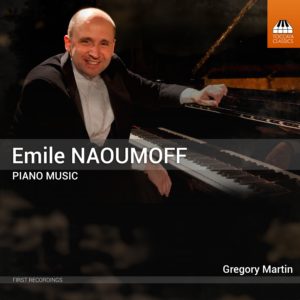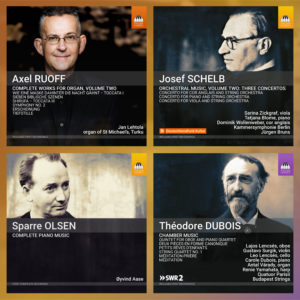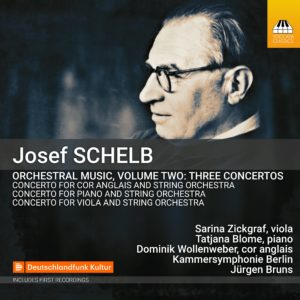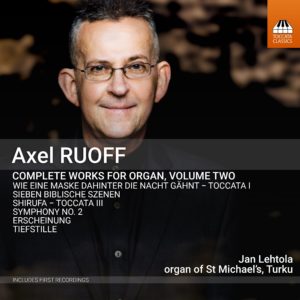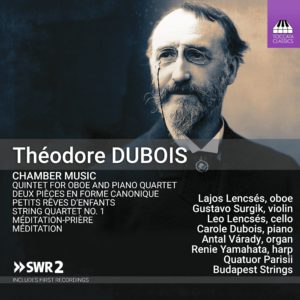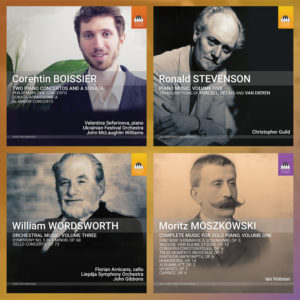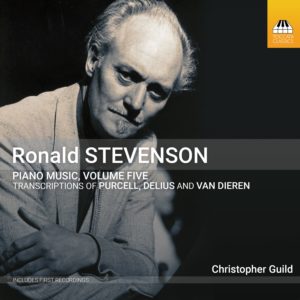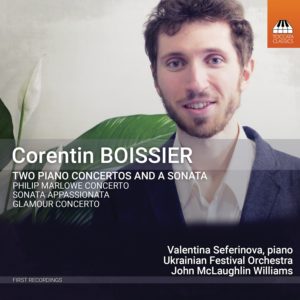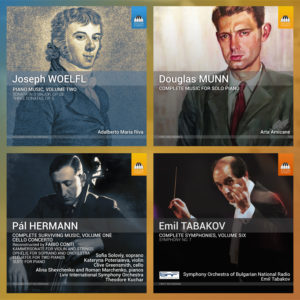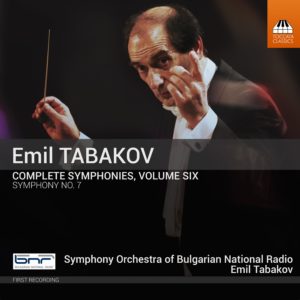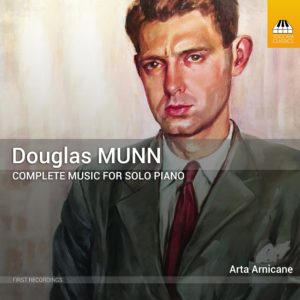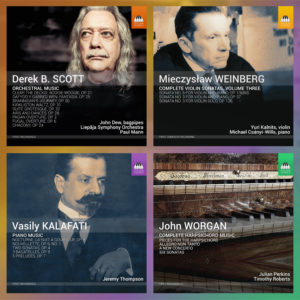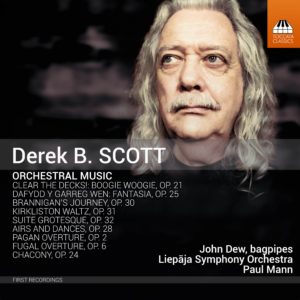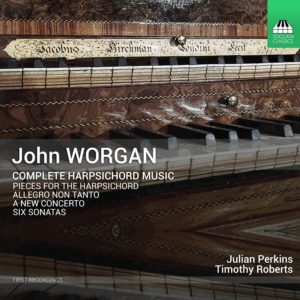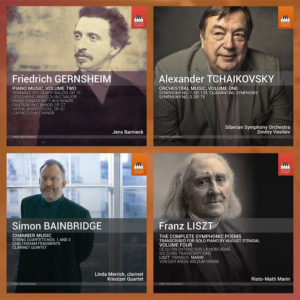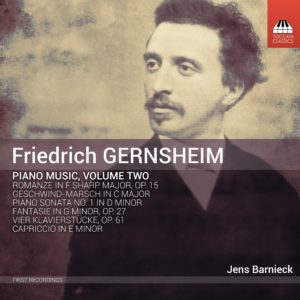Search Results for "Space Wolf: The First Omnibus mp3 torrent" – Page 51
Émile Naoumoff: Complete Piano Music
Emile Naoumoff, born in Sofia in 1962, was a child prodigy as pianist and composer in his native Bulgaria but was soon taken under the wing of Nadia Boulanger in Paris – ‘the gift of my old age’, she said. Naoumoff himself has tended to record the music of other composers, and so this recital of his piano music has been recorded by Gregory Martin, who has worked with him in various capacities. It presents music from across Naoumoff’s career – from that gifted childhood to a piece inspired by the sight of Notre Dame Cathedral in flames in 2019 – absorbing influences from Slavic folk-dance to Gabriel Fauré, whose ‘grand-student’ he is.
Gregory Martin, piano
June 2021 Bundle
Included in this bundle:
Josef Schelb: Orchestral Music, Volume Two: Three Concertos
Josef Schelb (1894–1977) is one of the better-kept secrets of German music. His output was substantial: he lost most of his early music in a bombing raid in 1942 but, as if to make up for lost time, wrote some 150 more works after that, in the tonally liberated, quasi-Expressionist contrapuntal tradition of Hindemith and Hartmann; Bartók was an important influence, too. These three concertos show him at his most engaging: the contrapuntal craftsmanship that drives the music forward is deployed with a light and nimble touch, and passages of touching delicacy contrast with others where a lively sense of humour comes bubbling up to the surface.
Tatjana Blome, piano (Tracks 1 – 3)
Sarina Zickgraf, viola (Tracks 4 – 6)
Dominik Wollenweber, cor anglais (Tracks 7 – 9)
Kammersymphonie Berlin
Jürgen Bruns, conductor
Axel Ruoff: Complete Works for Organ, Volume Two
The organ works of Axel Ruoff, born in Stuttgart in 1957, constitute one of the most important contributions to the literature for the instrument by any composer since Messiaen. Stylistically, his music unites the French cathedral tradition of composers like Langlais, Dupré and Guillou with the concern with counterpoint and logic heard in Reger and later German figures. Like Messiaen, Ruoff often finds stimulus in religious sources; unlike him, it is biblical narrative that inspires many of Ruoff’s works, and he uses the unparalleled resources of the modern symphonic organ in his responses to some of the most dramatic scenes in both Testaments, writing music of freewheeling energy and uncompromising power.
Jan Lehtola organ of St Michael’s Church, Turku, Finland
Théodore Dubois: Chamber Music
The music of Théodore Dubois (1837–1924) has rather been overshadowed by that of other French composers of the same period, not least Fauré and Saint-Saëns. But Dubois does not deserve his relative neglect: not only was he a superlative craftsman, but he could also unfold a fetching melody and had a strong sense of musical narrative. This recital of chamber works for oboe and strings is noteworthy for a further quality, one often underestimated: much of the music is, quite simply, charming.
Lajos Lencsés, oboe (Tracks 1 – 5, 10, 13, 14)
Gustavo Surgik, violin (Track 5)
Leo Lencsés, cello (Track 13, 14)
Carole Dubois, piano (Track 1 – 4)
Antal Váradi, organ (Tracks 5, 10)
Renie Yamahata, harp (Track 10)
Quatuor Parisii
Arnaud Vallin, violin (Tracks 1 – 4, 6-9, 11-12)
Doriane Gable, violin (Tracks 6-9, 11-12)
Dominique Lobet, viola (Tracks 1-4, 6-9, 11-12)
Jean-Philippe Martignoni, cello (Tracks 1-4, 6-9, 11-12)
Budapest Strings (Tracks 10, 13, 14)
May 2021 Bundle
Included in this bundle:
Ronald Stevenson: Piano Music, Volume Five
The personal generosity that made the Scottish composer Ronald Stevenson (1928–2015) such a warm and vibrant character extended also to his writing-desk: around a quarter of his enormous output is given over to transcriptions, mostly for piano, of music by other composers. Here he pays homage to three earlier colleagues whose music he particularly esteemed: Purcell, Delius and van Dieren. Stevenson described his version of Van Dieren’s String Quartet No. 5 (1931) as ‘transcribed as a piano sonata (which B. v. D. never composed)’ – and thus it became the piano sonata which Stevenson himself never composed. The album ends with Stevenson’s brief but achingly beautiful harmonisation of Purcell’s The Queen’s Dolour – as exquisite an example of the transcriber’s art as anyone could wish.
Christopher Guild, piano
Corentin Boissier: Two Piano Concertos and a Sonata
The phrase ‘unashamed Romantic’ might not have been coined for the French composer Corentin Boissier, born in the Paris suburbs in 1995, but it certainly fits him well. As the titles of his Glamour Concerto and Philip Marlowe Concerto suggest, he revels in the full-textured sound of 1940s and ’50s Hollywood, the golden age of Addinsell’s Warsaw Concerto, Rota’s Legend of the Glass Mountain and other such high-calorie classics. The Second Piano Sonata, the Sonata Appassionata, is no less Neo-Romantic, but has flecks of Russian colour, locating it downstream from Rachmaninov.
Valentina Seferinova, piano
Ukrainian Festival Orchestra (Tracks 1-3, 7-9)
John McLaughlin Williams, conductor (Tracks 1-3, 7-9)
April 2021 Bundle
Included in this bundle:
Emil Tabakov: Complete Symphonies, Volume 6
The music of the Bulgarian composer-conductor Emil Tabakov (b. 1947) explores the darker side of the human spirit in epic scores as austere as they are powerful. His mighty Seventh Symphony, almost an hour in length, is conceived on a massive scale. The monumental opening Allegro moderato passes through islands of calm during its desperate ride through hell, and is followed by a heaven-rattling funeral march and a wild, swirling dance. The finale opens by stoking up the tension in an extensive slow introduction before the music is once again whipped into a maelstrom of dark, driven energy, piling forward to its inexorable conclusion.
Symphony Orchestra of Bulgarian National Radio
Emil Tabakov, conductor
Douglas Munn: Piano Music
The man who as W. D. Munn published papers on that branch of mathematics known as semigroup theory had another side to his personality: Douglas Munn (1929–2008), professor of mathematics at the University of Stirling, was also a fine pianist and a gifted composer. His piano music has its origins in Chopin, Brahms and Bartók but is clearly also inflected by Scottish folksong – much of it has a sense of the hills and the open spaces – and is written by someone with an intimate knowledge of the instrument. The Latvian pianist Arta Arnicane knew Douglas Munn and this album is the fulfilment of an unspoken promise to record his piano music.
Arta Arnicane, piano
March 2021 Bundle
Included in this bundle:
Derek B. Scott: Orchestral Music
Derek Scott, born 1950, Birmingham, has an international reputation as a leading historian of the British music hall and other forms of light entertainment but he is an outstanding composer in his own right, his music treading a fine line between a very English whimsy and a profoundly felt and natural response to his (often Celtic) subject matter. These works reveal a master, who finds deep feeling behind the levity
John Key, bagpipe
Liepāja Symphony Orchestra
Paul Mann, conductor
John Worgan: Complete Harpsichord Music
The organist and harpsichordist John Worgan (1724–90) was one of the most highly respected musicians in the London of his day: Handel admired his playing, and Burney described him as ‘very masterly and learned’. All that survives of his harpsichord music are a ‘New Concerto’, an independent Allegro non tanto and two collections, one of six sonatas and the other of thirteen teaching pieces, but they encompass an eclectic variety of styles and a surprising range of emotions – proud, spirited, witty, impulsive, touching, vivacious – making Worgan sound something like an English Domenico Scarlatti.
Julian Perkins, double-manual harpsichord from the workshop of Jacobus Kirckman, 1772 (Tracks 1–15, 29–31)
Timothy Roberts, double-manual harpsichord by Klaus Ahrend, 1973, after Dulcken (Tracks 16–28)
February 2021 Bundle
Included in this bundle:
Friedrich Gernsheim: Piano Music Volume Two
Friedrich Gernsheim (1839–1916), born in Worms, on the Rhine, grew up to be one of the most formidable musicians of his age: composer, pianist, conductor and teacher. Even as a teenager, Gernsheim was attracting attention as a virtuoso-composer, earning comparisons with Mozart. The works here document the emergence of his own musical personality, from an early sonata, which has a Mozartian opening and a Beethovenian slow movement, via a dalliance with Schumann, until he reaches a mature style comparable to Brahms in its emotional range and depth.
Jens Barnieck, piano
Stay In the Know
JOIN THE TOCCATA NEWSLETTER
"*" indicates required fields
By visiting our site, you agree to our privacy policy regarding cookies, tracking statistics, etc.
